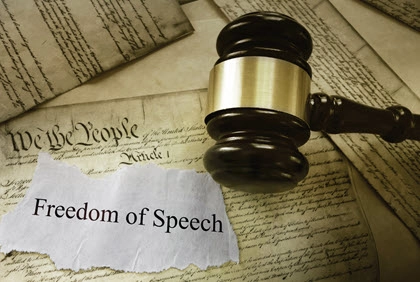Private or public status may affect how your employees can communicate about their opinions.
The elimination of the federal constitutional right to an abortion has implications far and wide for almost everyone living in the United States, and employers are no exception.
Employers and employees alike may think that the First Amendment protects individual speech in most situations, but expert analysis from Hall Render attorneys suggests that the issue may not be cut and dry.

Employers Should Evaluate These Three Things
There are three areas that employers should focus on when it comes to hot-button social issues. Of course, in the case of abortion rights, the issue is much larger because abortion is a procedure that frequently takes place in a healthcare facility and is almost always overseen by a doctor or other healthcare professional.
Hall and Render attorneys recommend that employers decide whether they, as an organization, are going to take a position and then whether and how to communicate that position.
Beyond the public perception of an organization’s “stance” on such an issue, employers also need to be aware of whether their healthcare benefits cover abortion services. If employers are located in states where abortion is no longer a federally protected right and thus illegal, the organizations should know how they are going to navigate those complications.
Employers also need to figure out the protections and policies surrounding employee discourse in the workplace and be especially aware of the lines demarcating public and private entities.
Know That the First Amendment May Not Apply
Although “civilians” of every stripe lean on the First Amendment as a blanket protection of free speech, freedom of speech may not apply in every situation.
The First Amendment does not afford protection to employees in a wholly private workplace, say Hall Render attorneys Jon Rabin, Kevin Stella, Bill Roberts, Fred Bachmann, and Calvin Chambers in online analysis. Legally, employers have a lot of leeway in restricting workplace communications, they say, but doing so may lead to issues with employee morale or even public relations. Importantly, even though federal protections may not apply, states may have laws on the books that do limit employer restrictions on speech in the workplace.
Employees working for county or other public hospitals are protected by the First Amendment, and such protections may extend to situations where an employer tries to retaliate against an employee for speaking out about an issue like the Dobbs v. Jackson Women’s Health ruling and its repercussions. If a governmental employer is considering taking action against an employee for speaking out (regardless of the opinion), the Hall Render attorneys advise seeking legal advice before doing so, to establish whether the employee and situation in question are protected by the First Amendment.
Another important point that employers may not know: Employees, even those who are without union representation, may be protected by the National Labor Relations Act (NLRA). Rabin, Stella, Roberts, Bachmann, and Chambers explain that the NLRA offers protection for employees via prohibiting employer retaliation for employees who engage in “protected, concerted activity.” This generally applies to terms and conditions of employment but may apply specifically to abortion if the employee(s) discuss benefit offerings like whether an employer covers the costs of abortion services. State law may affect whether employees working for governmental entities are covered.
Also be careful of religious discrimination, as opinions on abortion are often tied to religious beliefs, the attorneys say. Employees who feel they are being discriminated against by their employer after being vocal about the Dobbs ruling may make an employer vulnerable to legal challenge under Title VII of the Civil Rights Act or individual state laws concerning antidiscrimination.
Many people feel strongly about the Dobbs decision and may feel so moved as to wear or otherwise represent their opinions in their clothing, buttons or pins, virtual messaging, etc. The Hall Render attorneys recommend making sure an organization’s policies are clear, consistent with the law, and consistently enforced.

Review Employee Benefits
As abortion falls under the umbrella of healthcare, employers should review their group health plans to understand what, if any, abortion services are currently covered. The combination of the patchwork nature of health plans alongside the varying legality of abortion access depending on each state could mean a huge legal headache for some organizations, especially if they are large enough to have employees located across multiple states.
Know whether your organization provides fully insured group health plans or self-funded health plans. Some group health plans are protected by the Employee Retirement Income Security Act of 1974 (ERISA), which may preempt state or local laws affecting employee benefits — excepting state insurance laws, the attorneys explain. ERISA only affects civil liability, not criminal liability, they say.
State by state, there may now be insurance laws in place that pertain to abortion services, which would affect fully insured group health plans.
Self-funded health plans do not fall under the regulatory purview of state insurance laws, the attorneys say, and thus, in states where abortion remains legal, employers can choose to design their plans to cover services. If an employer wishes to cover the expenses associated with traveling out of state to access abortion services, there are a few ways to do so, but legality may be a bit sticky, depending on the state and even on rules surrounding taxes.
